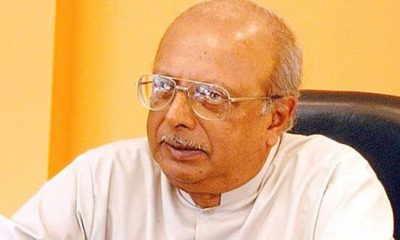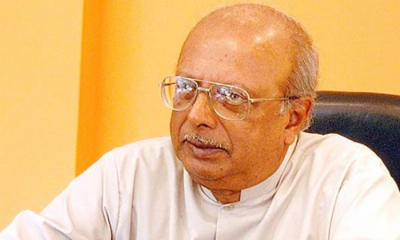News
‘Govt must hide its head in shame for allowing the crisis to deepen’
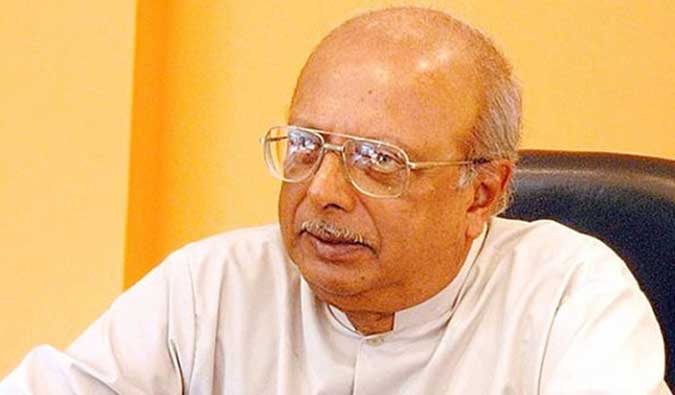
by Prof.TISSA VITARANA
Looking back at 2022, Sri Lanka cannot look forward to 2023, with any sense of hope. The economic, social and political crisis deepens without any clear plan by the Government to emerge from the crisis. Inflation is increasing with the Government, which is short of money due to its reluctance to tax the rich, resorting to massive printing of currency notes. This rise in the cost of living is fed by the support given to the private traders and big rice mill owners to fleece the cultivator and the producer who are in perpetual debt to them on the one hand and the consumer on the other. Survey data indicates that more than 65% of families live below the poverty line and that the malnutrition rate has approached 20%. Thus one out of five children below five years of age is suffering from severe under nutrition, and are both physically stunted and thin, but also mentally defective.
The future generation will be badly affected. Thus people with fixed or diminishing incomes faced with the high cost of living are suffering from hunger. In many families the parents have one meal a day and the children two, but the meals lack protein which is essential for development as well as vitamins and key minerals. Rampant bribery and corruption in the Administrative service has added to the suffering of the average person in his daily life; it is no longer a Public Service, it only serves the rich, the crooks and those with influence Instead of Government action to stop this exploitation by the middleman, like strengthening the Cooperative Movement among producers and consumers, reviving the Marketing and Food Control Departments, the Government supports the exploiter, rather than the exploited.
Ranil Wickremasinghe (RW) as Finance Minister tries to control the inflation by increasing the bank interest rate to a massive 30%. This not only deters the startup of new companies but also hits the established ones. The outcome of these policies is that the economy will continue to shrink, with more closures and job losses in the private sector together with the near complete stop to infrastructure development in the public sector. RW claimed that he would revive the economy through the private sector but his policies are undermining the private sector. The lack of jobs especially among the youth is leading to their leaving the country in huge numbers. The brain drain among professionals like doctors due to wrong tax policies is also increasing in an alarming manner. The youth that remain are driven to illicit activities like drug addiction and trafficking, and prostitution. Criminal activities like robberies, petty thefts, abductions, rape, assaults and murders are increasing so that people fear to venture out, especially after dark. Conflicts within families and between families and among criminal gangs are increasing. In society as a whole the collective cooperative spirit is being replaced by neoliberal individualism. Social cohesion is being lost. There is a complete breakdown of law and order.
The policy of taking more and more foreign loans is being persisted with. But even the International Monetary Fund (IMF) has yet to come forward with any part of its promised 3.9 billion US dollar (USD) aid package, despite several months of negotiations. Even if we get the IMF loan it will be too little too late. The terms demanded, if fully implemented, will reverse all the gains of the post-1956 era towards building a national economy as a sovereign independent state and emerge from our colonial past. The IMF demands would lead to de-nationalization and privatization of state-owned enterprises, but worst of all to the ownership passing over even to foreign hands. Sri Lanka would become a neo-colony subject to direct Imperialist exploitation once again.
The Government expects that by bowing down to the IMF terms Sri Lanka would be able to access more multilateral and bilateral loans and emerge from the dollar crisis and restore the ability to import using letters of credit from local banks. But getting deeper into foreign debt, which is the main cause of our dollar shortage and crisis, will only make matters worse. In 2021 we had to pay USD seven billion to service our 52 billion USD foreign debt, and Sri Lanka will be drawn further into the foreign debt trap. The fact that nearly 50% of the foreign loans are International Sovereign Bonds (which are short term high interest private loans) which are difficult to re-negotiate to delay payment makes matters worse. To further aggravate the situation the ban on the import of half of over 1500 non-essential items by this Government has been lifted recently. The dollar shortage will get worse and the fuel and gas queues will return and the shortage and high price of medicines and essential food items will also continue to rise.
The wrong policies of the present Government should be radically changed. There must be “a system change”. The way to increase productivity and national income is not by going back to the purely profit oriented privatization policy, but to move with the times and turn to a solidarity economy, as in Scandinavia and some provinces in Germany. In our agricultural economy the biggest export income earner is tea. But the private companies say they are running at a loss and cannot pay the employees a living wage. After 5 years of struggle the employees won a wage increase, the total allowance was raised to Rs.1000/day. But the employees are now being forced to increase their green leaf quota from 18 kilos per day to an impossible 24 kilos.
Even if they provide 20 or even 22 kilos, their pay is cut by Rs 50 per Kg, so that they are back to the status quo ante. We must learn from Kerala, India, where the solidarity economy is now in action. The ownership has been given to the employees by the Left regime, and as owners with shares in the company, in addition to their salary, they have increased the output tremendously and produce a large profit, which also benefits the society.
The present Government should also promote value added industry based on local raw material. I am happy to mention that as Minister of Science and Technology I developed the nanotechnology centre, SLNTEC, which can do this. In addition I was happy to learn that the Vidatha Centres for the development of SMEs in every Division have now topped the mark of thousand entrepreneurs that have successfully exported their products. Thus the answer is to make Sri Lanka an industrialized exporter of finished products.
Latest News
PM underscores the outstanding universal value of Anuradhapura’s Living Heritage at International Expert Conference in Paris
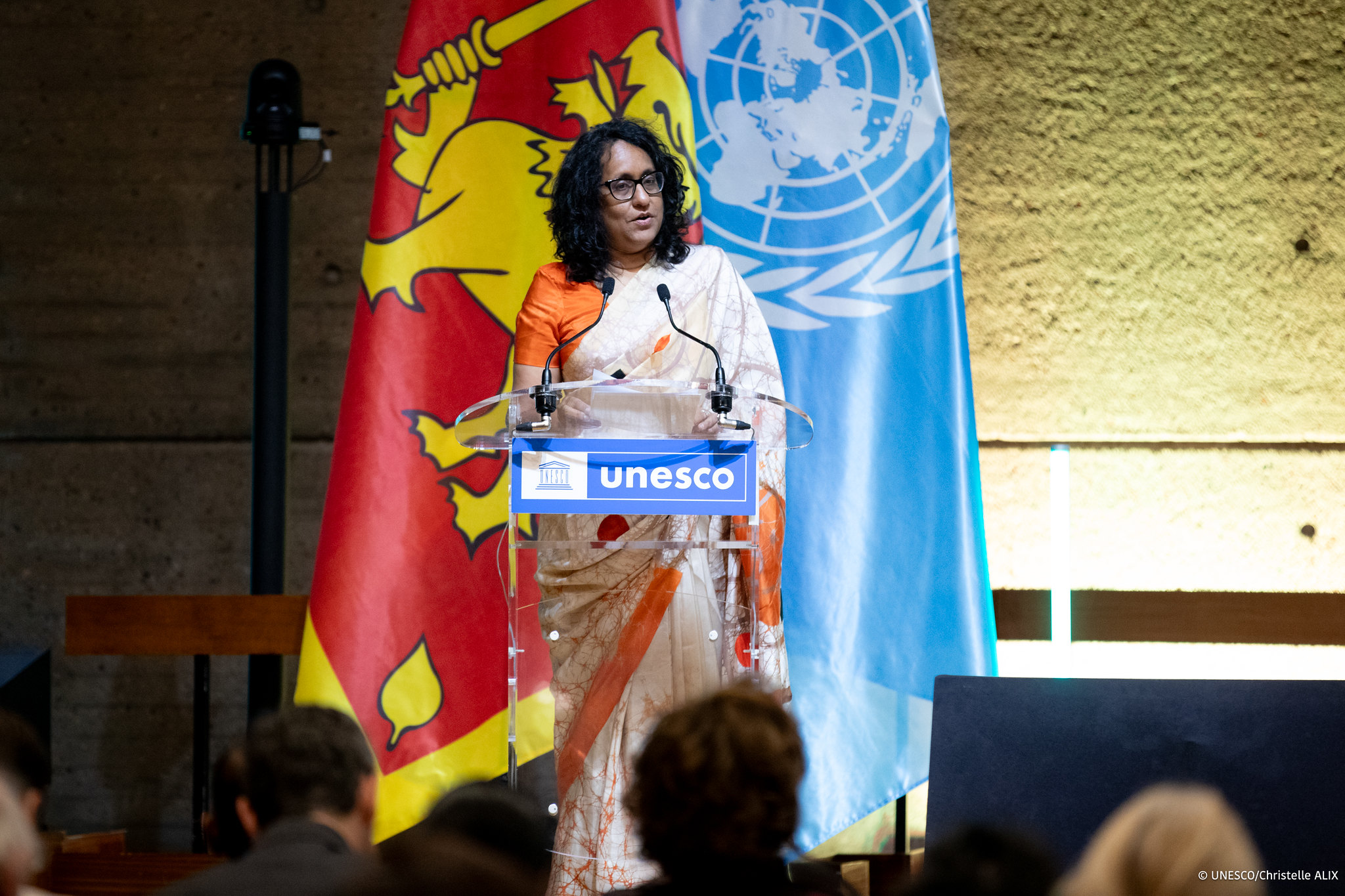
Prime Minister Dr. Harini Amarasuriya who is on an official visit to France from 31 March to 2 April 2025, participated in the high-level segment of the International Expert Conference on “An Integrated and Sustainable Approach to Safeguarding the World Heritage Property of the Sacred City of Anuradhapura in Sri Lanka and Associated Living Heritage”, held at UNESCO Headquarters in Paris on Tuesday 1 April 2025.
The International Conference was organized by UNESCO in partnership with the Government of Sri Lanka to showcase the universal significance of the Sacred City of Anuradhapura and its associated living heritage, and to garner international cooperation for its conservation and sustainable development.
Inaugurating the Conference, Director-General of UNESCO Audrey Azoulay warmly welcomed Prime Minister Amarasuriya to UNESCO, while recalling her own memorable visit to Sri Lanka in July 2024 where she had the valued opportunity to witness firsthand the “exceptional heritage” of the Sacred City of Anuradhapura, which she described as “a spiritual hub, a royal capital of over a 1,000 years, and the birthplace of Theravada Buddhism.” Referring to the inscription of Anuradhapura in the world heritage list in 1982, she underscored the importance of global solidarity and international cooperation in safeguarding this extraordinary world heritage for posterity, and the intent of the Conference to explore further means of its conservation and sustainable development through international cooperation. In concluding her address, the Director-General recalled the words of renowned Sri Lankan archaeologist and former President of ICOMOS International Dr. Roland Silva, that Anuradhapura continues to be “a modern wonder of the world.’
Addressing the high-level segment, Dr. Harini Amarasuriya outlined Sri Lanka’s national vision to preserve the global heritage of the Sacred City of Anuradhapura for education, pilgrimage and heritage tourism, while ensuring the maintenance of a careful balance between conservation, sustainable development, and the needs of local communities. The Prime Minster also extended her deep appreciation to Director-General Azoulay for her vision and leadership which was instrumental in convening this International Conference dedicated to Anuradhapura.
Striking a personal note, the Prime Minister reminisced about her childhood and youthful memories of this heritage city, where she felt “the magic of Anuradhapura, the sense of awe at the creativity and skills of our ancestors.” She described Anuradhapura as “a unique mix of the ’sacred’ (activities belonging to the spiritual realm) and the ’profane’ (relating to the everyday and the material realm),” while also highlighting the advanced architectural and hydraulic expertise of this ancient civilization, whose origins can be traced back to 900 BCE.
Referring to UNESCO’s institutional mandate, the Prime Minister commended the organization—led by the Director-General, the secretariat, and its member states—for its invaluable contributions to advancing global discussions on education reform, mainstreaming cultural recognition, and harnessing knowledge and innovation for global peace and sustainable development amid complex geopolitical challenges.
Delivering the keynote address, the Minister of Buddhasasana, Religious and Cultural Affairs Dr. Hiniduma Sunil Senevi presented the integrated management plan of the Government of Sri Lanka towards the sustainable and integrated management of the Sacred City of Anuradhapura. He reiterated the Sri Lanka Government’s commitment to preserving the Outstanding Universal Value of the heritage site through inclusive, sustainable development. He further urged the international community to join hands with Sri Lanka in safeguarding this shared heritage for future generations, and to ensuring that its benefits reach local communities.
The Conference brought together internationally recognized experts, senior officials of government, development partners, heritage professionals and the diplomatic corps in exploring innovative and sustainable approaches to integrated site management. The key themes discussed comprised the integration of tangible and intangible heritage, capacity building, strengthened community participation, the application of digital tools in conservation, sustainable tourism aligned with World Heritage guidelines, and the critical importance of international partnerships and resource mobilization for long-term preservation of this heritage site.
The Prime Minister had a meeting with Director-General Azoulay on the sidelines of the Expert Conference where thematic areas of cooperation were discussed. The Prime Minister highlighted Sri Lanka’s interest in enhancing UNESCO’s presence in the country through suitable programmes, and apprised the Director-General on progress in Sri Lanka’s Category II South Asia Centre for Teacher Development (SACTD), Sri Lanka’s engagement in the programme of work of UNESCO, Sri Lanka’s educational reforms and areas of synergy with UNESCO, as well as the country’s commitment to the annual celebration of Vesak in UNESCO, among other matters. The Director-General reiterated UNESCO’s continued commitment to supporting Sri Lanka’s multifaceted collaboration with the international body.
At a reception hosted by the Ambassador and Permanent Delegation of Sri Lanka to UNESCO, the Prime Minister underscored the importance of Sri Lanka’s 75-year partnership with UNESCO, and reaffirmed the country’s commitment to further strengthening this collaboration in key areas of cooperation. She did so in her capacity as the Minister of Education, Chairperson of the Sri Lanka National Commission for UNESCO, and Chairperson of the Central Cultural Fund.
The Prime Minister also formally handed over to the Director-General, Sri Lanka’s Instrument of Accession to the 2005 UNESCO Convention on the Protection and Promotion of the Diversity of Cultural Expressions, demonstrating the country’s commitment to promoting cultural diversity, artistic freedom, and international collaboration. Ambassadors and Permanent Delegates accredited to UNESCO, senior representation of the UNESCO Secretariat including Director and team of the World Heritage Centre, the President of the France – Sri Lanka Friendship Group in the French National Assembly, expert participants of the Conference, academics, scholars and senior officials of the French Ministry for Europe and Foreign Affairs attended the reception and conveyed their warm greetings and felicitations to the Prime Minister.
The delegation of the Prime Minister comprised the Minister of Buddhasasana Religious and Cultural Affairs Dr. Hiniduma Sunil Senevi; the Director General, Central Cultural Fund Dr. Nilan Cooray and the Director General, Department of Archaeology Prof. Thusitha Mendis. The Prime Minster was assisted by the Ambassador and Permanent Delegate of Sri Lanka to UNESCO Manisha Gunasekera and senior staff of the Embassy and the Permanent Delegation of Sri Lanka to UNESCO.
[Prime Minister’s Media Division]
Latest News
Deshabandu Tennakoon further remanded until April 10

The Matara Magistrate’s Court has ordered that former Inspector General of Police (IGP) Deshabandu Tennakoon be further remanded until April 10.
The former IGP has been held in remand custody after he surrendered to the Matara Magistrates court on 19th March 2025.
Latest News
President appoints committee to submit recommendations to the Government on the new US tariff system
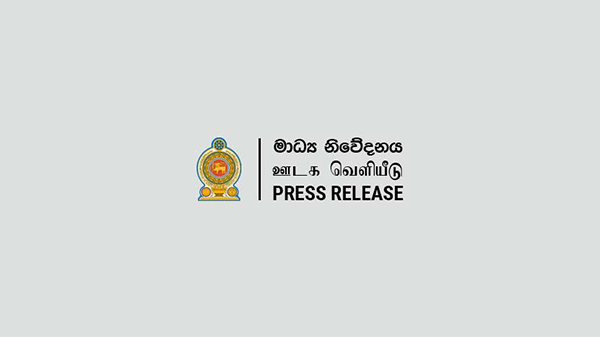
President Anura Kumara Disanayake appointed a committee to conduct an in-depth study on potential issues that may arise due to the new reciprocal tariff system introduced by US President Donald Trump and to submit recommendations to the government.
Accordingly, the committee includes the Secretary to the Ministry of Finance, the Governor of the Central Bank, the Chairman of the Board of Investment of Sri Lanka, the Chairman of the Sri Lanka Export Development Board and the Director General of Economic Affairs at the Ministry of Foreign Affairs.
Additionally, Senior Economic Advisor to the President Duminda Hulugamuwa, Chief Economic Policy Advisor to the Ceylon Chamber of Commerce Shiran Fernando, as well as Ashroff Omar, Sherad Amalean and Saif Jafferjee have also been appointed to the committee.
-

 Sports5 days ago
Sports5 days agoSri Lanka’s eternal search for the elusive all-rounder
-

 News4 days ago
News4 days agoBid to include genocide allegation against Sri Lanka in Canada’s school curriculum thwarted
-

 News6 days ago
News6 days agoGnanasara Thera urged to reveal masterminds behind Easter Sunday terror attacks
-

 Sports16 hours ago
Sports16 hours agoTo play or not to play is Richmond’s decision
-

 Business7 days ago
Business7 days agoAIA Higher Education Scholarships Programme celebrating 30-year journey
-

 News5 days ago
News5 days agoComBank crowned Global Finance Best SME Bank in Sri Lanka for 3rd successive year
-

 Features5 days ago
Features5 days agoSanctions by The Unpunished
-

 Features5 days ago
Features5 days agoMore parliamentary giants I was privileged to know


